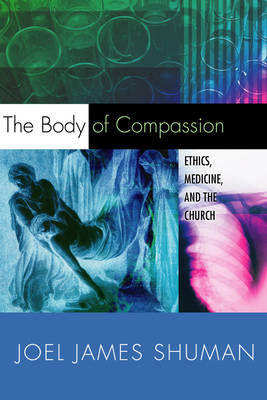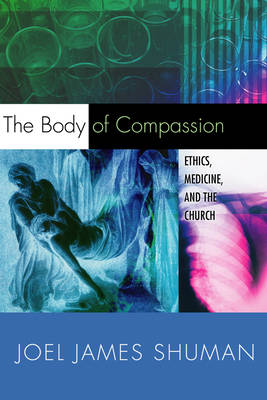
- Retrait gratuit dans votre magasin Club
- 7.000.000 titres dans notre catalogue
- Payer en toute sécurité
- Toujours un magasin près de chez vous
- Retrait gratuit dans votre magasin Club
- 7.000.0000 titres dans notre catalogue
- Payer en toute sécurité
- Toujours un magasin près de chez vous
Description
In 'The Body of Compassion', Joel Shuman presents an important new theological treatment of contemporary bioethics, weaving together personal experience, a critical treatise on bioethics, and an exploration of a Christian theological alternative. The author first draws the reader toward a consideration of the current state of his grandfather, a hardworking man with deep attachments to family and land who died a solitary death, unaccompanied by loved ones, in the unfamiliar and sterile world of a hospital. Troubled by the way his grandfather died, Shuman takes the reader along as he explores how modern medicine has distanced itself from dealing with people as living beings beyond their immediate physicality. He examines how various approaches to bioethics over the past twenty years have tried to remedy this problem by prescribing certain standards for treatment and how each of these ultimately has fallen short due to the lack of a ""teleological concern for the body"" - i.e., a concern for what the body is actually for in a larger context. From this point, Shuman deftly moves to a discussion of the centrality of the body to Christianity, focusing on how baptism, participation in the liturgy, and the partaking of the Eucharist all serve to unite Christians as one in the body of Christ. For Christians, the author argues, the body does not just belong to the individual but rather is one with the community of the Church. With this in mind, Shuman proposes a new kind of bioethics for Christians, where care for the body of Christ becomes the model of how we should care for and receive care from each other. This fresh and thought-provoking book is sure to be of interest to ethicists, medical professionals, and everyone who is troubled by the conflicts between science and religion.
Spécifications
Parties prenantes
- Auteur(s) :
- Editeur:
Contenu
- Nombre de pages :
- 238
- Langue:
- Anglais
Caractéristiques
- EAN:
- 9781592441792
- Date de parution :
- 12-03-03
- Format:
- Livre broché
- Format numérique:
- Trade paperback (VS)
- Dimensions :
- 163 mm x 222 mm
- Poids :
- 331 g

Les avis
Nous publions uniquement les avis qui respectent les conditions requises. Consultez nos conditions pour les avis.






